Publications
Articles, publications, books, tools and multimedia features from the U.S. Institute of Peace provide the latest news, analysis, research findings, practitioner guides and reports, all related to the conflict zones and issues that are at the center of the Institute’s work to prevent and reduce violent conflict.
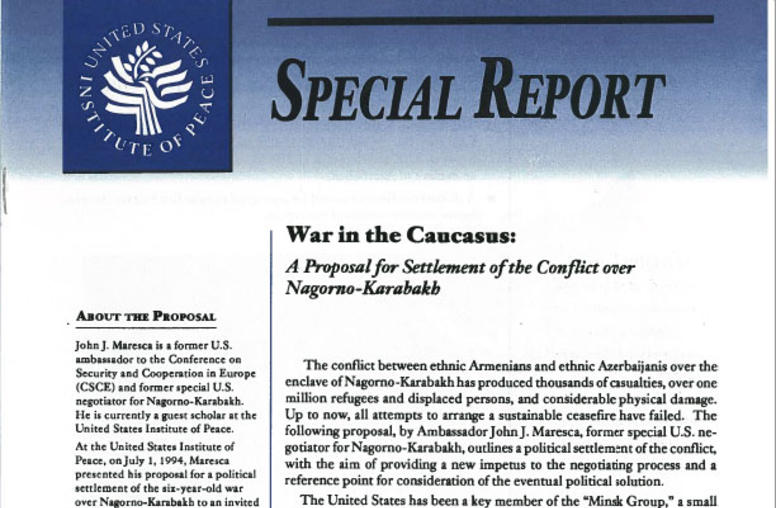
War in the Caucasus: A Proposal for Settlement of the Conflict over Nagorno-Karabakh
The conflict between ethnic Armenians and ethnic Azerbaijanis over the enclave of Nagorno-Karabakh has produced thousands of casualties, over one million refugees and displaced persons, and considerable physical damage. Up to now, all attempts to arrange a sustainable ceasefire have failed. The following proposal, by Ambassador John J. Maresca, former special U.S. negotiator for Nagorno-Karabakh, outlines a political settlement of the conflict, with the aim of providing a new impetus to the n...
North Korea's Nuclear Program
In a public atmosphere of heightening confrontation over North Korea's nuclear program, the United States Institute of Peace conducted· an intensive five-month review of Pyongyang's proliferation activities. Our objectives have been to help clarify public understanding of a complex issue with serious security concerns for the U.S. and key allies, and to assess negotiating strategies for dealing with the North Korean challenge.
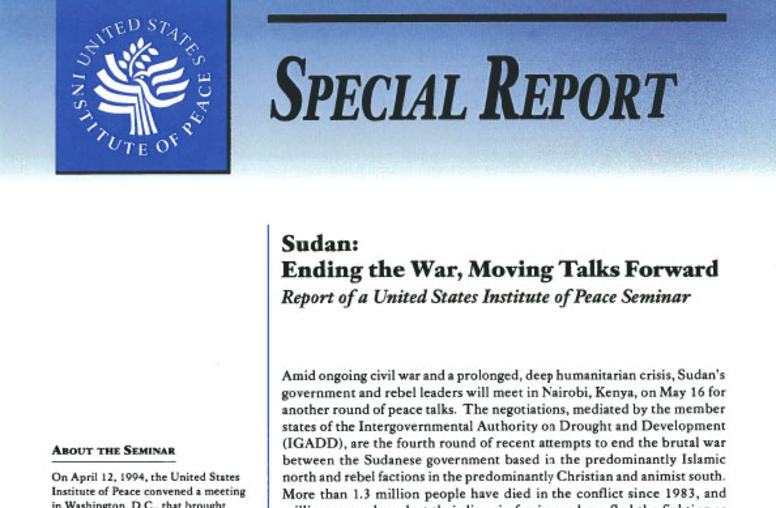
Sudan: Ending the War, Moving Talks Forward
Civil war has plagued Sudan off and on since decolonization began in 1955. Between 1955 and 1972, war raged between the predominantly Arab and Islamic north and the Christian and animist south over southern claims for autonomy and self-rule. The war ended with the Addis Ababa agreement, which granted local autonomy to the south. Currently there are deep disagreements in the north between the Islamist government and opposition parties (e.g., the Umma Party and the Democratic Unionist Party) o...
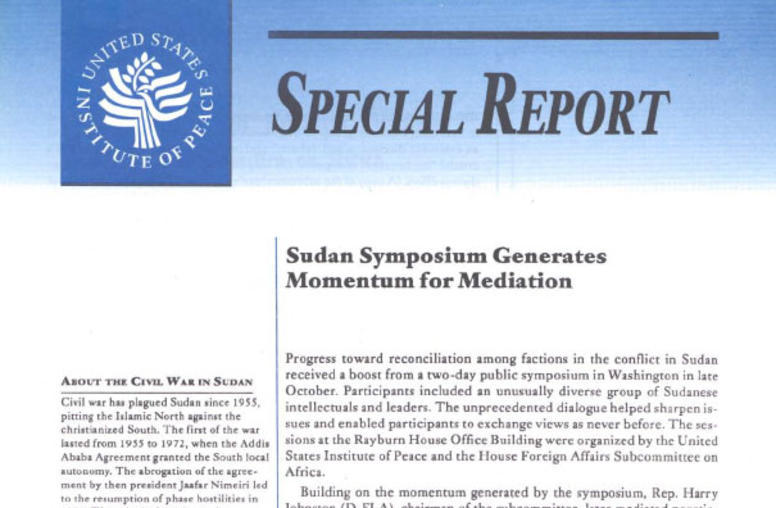
Sudan Symposium Generates Momentum for Mediation
Civil war has plagued Sudan since 1955, pitting the Islamic North against the Christianized South. The first of the war lasted from 1955 to 1972, when the Addis Ababa Agreement granted the South local autonomy. This report summarized the two-day public symposium, held in Washington at the Rayburn House Office Building, and organized by the United States Institute of Peace and the House Foreign Affairs Subcommittee on Africa. The symposium promoted reconciliation among factions in the conflic...
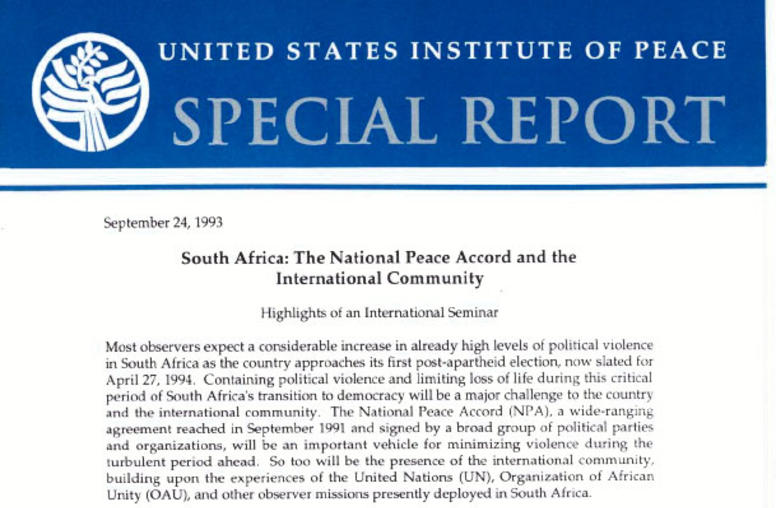
South Africa: The National Peace Accord and the International Community
The United States Institute of Peace brought together National Peace Accord officials, United Nations and Organization of African Unity officials, political party representatives, and representatives of conflict resolution non-governmental organizations (NGOs) for a public workshop in late July 1993 to discuss the linkages between the international community and the Peace Accord structures.
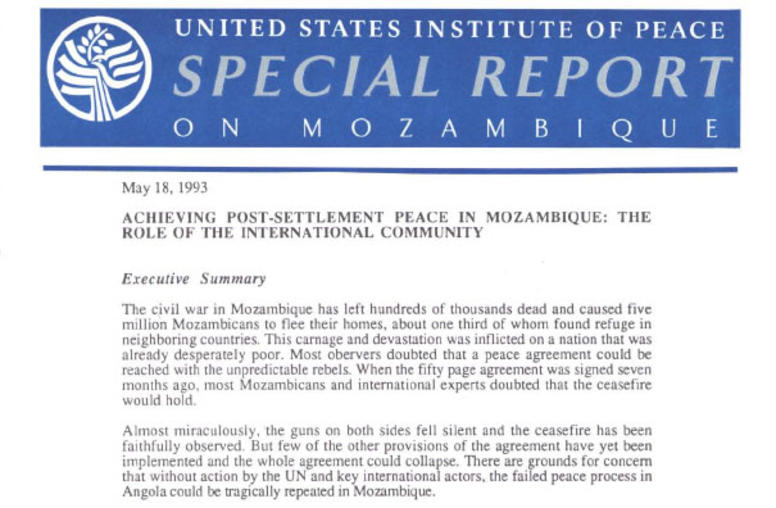
Achieving Post-Settlement Peace in Mozambique: The Role of the International Community
Summary The civil war in Mozambique has left hundreds of thousands dead and caused five million Mozambicans to flee their homes, about one third of whom found refuge in neighboring countries. This carnage and devastation was inflicted on a nation that was already desperately poor. Most observers doubted that a peace agreement could be reached with the unpredictable rebels. When the fifty page agreement was signed, most Mozambicans and international experts doubted that the ceasefire would ...
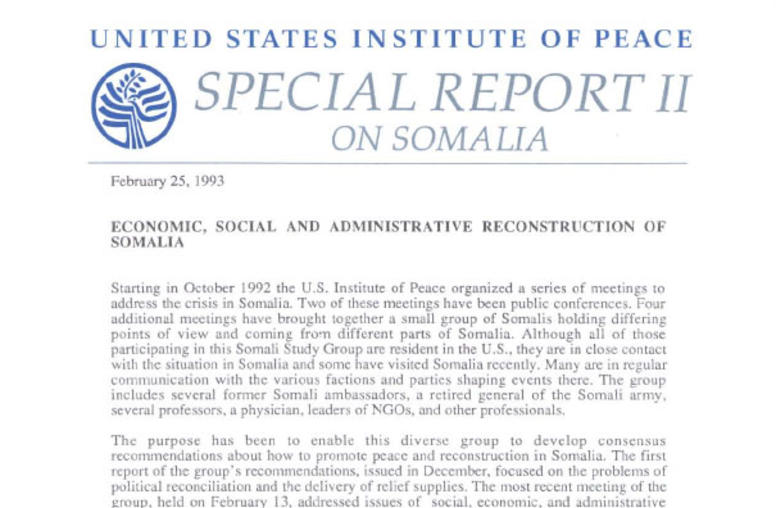
Economic, Social and Administrative Reconstruction of Somalia
Starting in October 1992 the U.S. Institute of Peace orgnized a series of meetings to address the crisis in Somalia. The meetings included several former Somali ambassadors, a retired general of the Somali army, several professors, a physician, leaders of NGOs, and other professionals.

Relief, Reconciliation, and Reconstruction in Somalia: Views of Prominent Somalis
The purpose of the meeting was to see if this diverse gathering of Somali professionals could develop consensusre commendations about how to promote more effective relief efforts in Somalia and how to advance toward political reconciliation and reconstruction Given their divergent perspectives, the group was able to achieve an impressive degree of consensus on key points. The purpose of this report is to summarize these points of consensus.